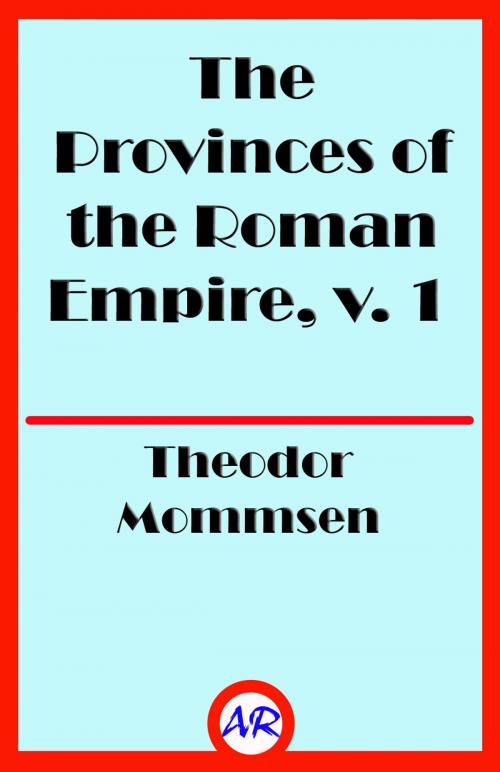| Author: | Theodor Mommsen | ISBN: | 1230001005806 |
| Publisher: | @AnnieRoseBooks | Publication: | January 7, 2018 |
| Imprint: | Language: | English |
| Author: | Theodor Mommsen |
| ISBN: | 1230001005806 |
| Publisher: | @AnnieRoseBooks |
| Publication: | January 7, 2018 |
| Imprint: | |
| Language: | English |
A wish has often been expressed to me that the History of Rome might be continued, and I have a desire to meet it, although it is difficult for me, after an interval of thirty years, to take up again the thread at the point where I had to let it drop. That the present portion does not attach itself immediately to the preceding, is a matter of little moment; the fifth volume would be just as much a fragment without the sixth as the sixth now is without the fifth. Besides, I am of opinion that, for the purposes of the cultured public, in whose minds this History is intended to promote an intelligent conception of Roman antiquity, other works may take the place of the Two Books, which are still wanting between this (the Eighth) and the earlier ones, more readily than a substitute can be found for that now issued. The struggle of the Republicans in opposition to the monarchy erected by Caesar, and the definitive establishment of the latter, are so well presented in the accounts handed down to us from antiquity that every delineation amounts essentially to a reproduction of their narrative. The distinctive character of the monarchical rule and the fluctuations of the monarchy, as well as the general relations of government influenced by the personality of the individual rulers, which the Seventh Book is destined to exhibit, have been at least subjected to frequent handling. Of what is here furnished—the history of the several provinces from the time of Caesar to that of Diocletian,—there is, if I am not mistaken, no comprehensive survey anywhere accessible to the public to which this work addresses itself; and it is owing, as it seems to me, to the want of such a survey that the judgment of that public as to the Roman imperial period is frequently incorrect and unfair. No doubt such a separation of these special histories from the general history of the empire, as is in my opinion a preliminary requisite to the right understanding of the history of the imperial period, cannot be carried out completely as regards various sections, especially for the period from Gallienus to Diocletian; and in these cases the general picture, which still remains to be given, will have to supply what is wanting.
A wish has often been expressed to me that the History of Rome might be continued, and I have a desire to meet it, although it is difficult for me, after an interval of thirty years, to take up again the thread at the point where I had to let it drop. That the present portion does not attach itself immediately to the preceding, is a matter of little moment; the fifth volume would be just as much a fragment without the sixth as the sixth now is without the fifth. Besides, I am of opinion that, for the purposes of the cultured public, in whose minds this History is intended to promote an intelligent conception of Roman antiquity, other works may take the place of the Two Books, which are still wanting between this (the Eighth) and the earlier ones, more readily than a substitute can be found for that now issued. The struggle of the Republicans in opposition to the monarchy erected by Caesar, and the definitive establishment of the latter, are so well presented in the accounts handed down to us from antiquity that every delineation amounts essentially to a reproduction of their narrative. The distinctive character of the monarchical rule and the fluctuations of the monarchy, as well as the general relations of government influenced by the personality of the individual rulers, which the Seventh Book is destined to exhibit, have been at least subjected to frequent handling. Of what is here furnished—the history of the several provinces from the time of Caesar to that of Diocletian,—there is, if I am not mistaken, no comprehensive survey anywhere accessible to the public to which this work addresses itself; and it is owing, as it seems to me, to the want of such a survey that the judgment of that public as to the Roman imperial period is frequently incorrect and unfair. No doubt such a separation of these special histories from the general history of the empire, as is in my opinion a preliminary requisite to the right understanding of the history of the imperial period, cannot be carried out completely as regards various sections, especially for the period from Gallienus to Diocletian; and in these cases the general picture, which still remains to be given, will have to supply what is wanting.















